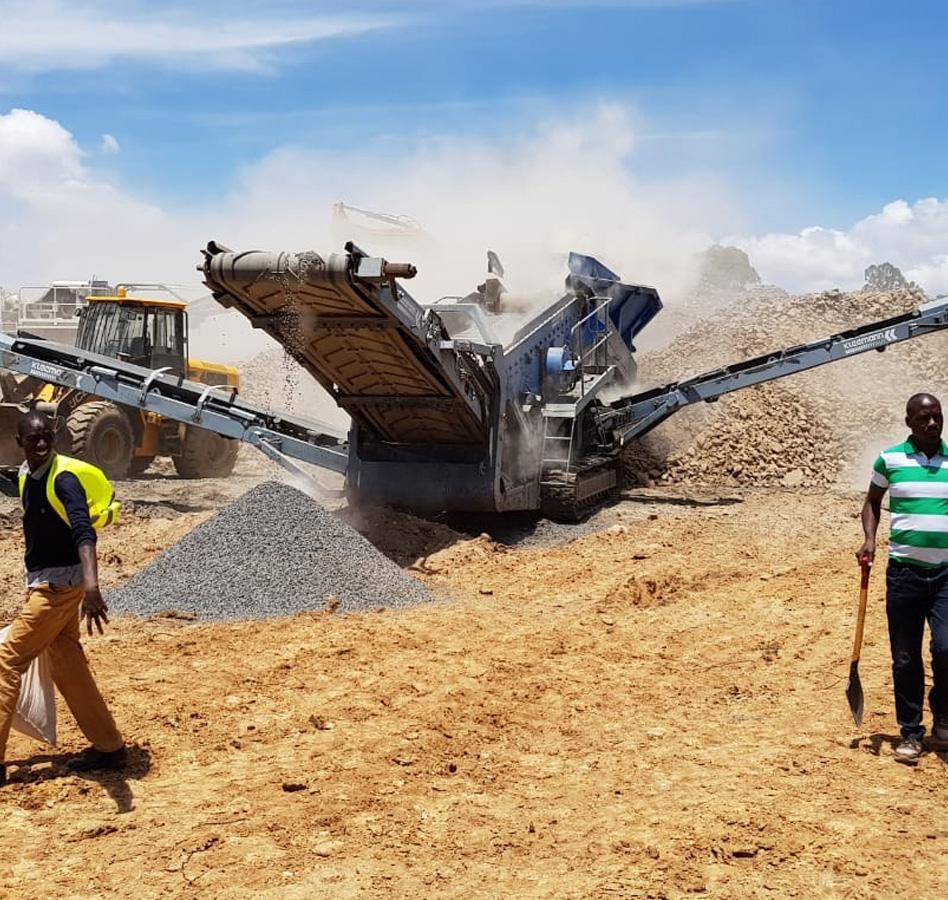
8 minute read
PRODUCTS & SERVICES
CONSTRUCTION AGGREGATES
Advertisement
Construction aggregate, or simply aggregate, is a broad category of coarse- to medium-grained particulate material used in construction, including sand, gravel, crushed stone, slag, recycled concrete and geosynthetic aggregates.
Aggregates are the most mined materials in the world. Aggregates are a component of composite materials such as concrete and asphalt concrete; the aggregate serves as reinforcement to add strength to the overall composite material. Due to the relatively high hydraulic conductivity value as compared to most soils, aggregates are widely used in drainage applications such as foundation and French drains, septic drain fields, retaining wall drains, and road side edge drains.
Aggregates are also used as base material under foundations, roads, and railroads. In other words, aggregates are used as a stable foundation or road/rail base with predictable, uniform properties (e.g. to help prevent differential settling under the road or building), or as a low-cost extender that binds with more expensive cement or asphalt to form concrete.
CONCRETE & ASPHALT BATCHING
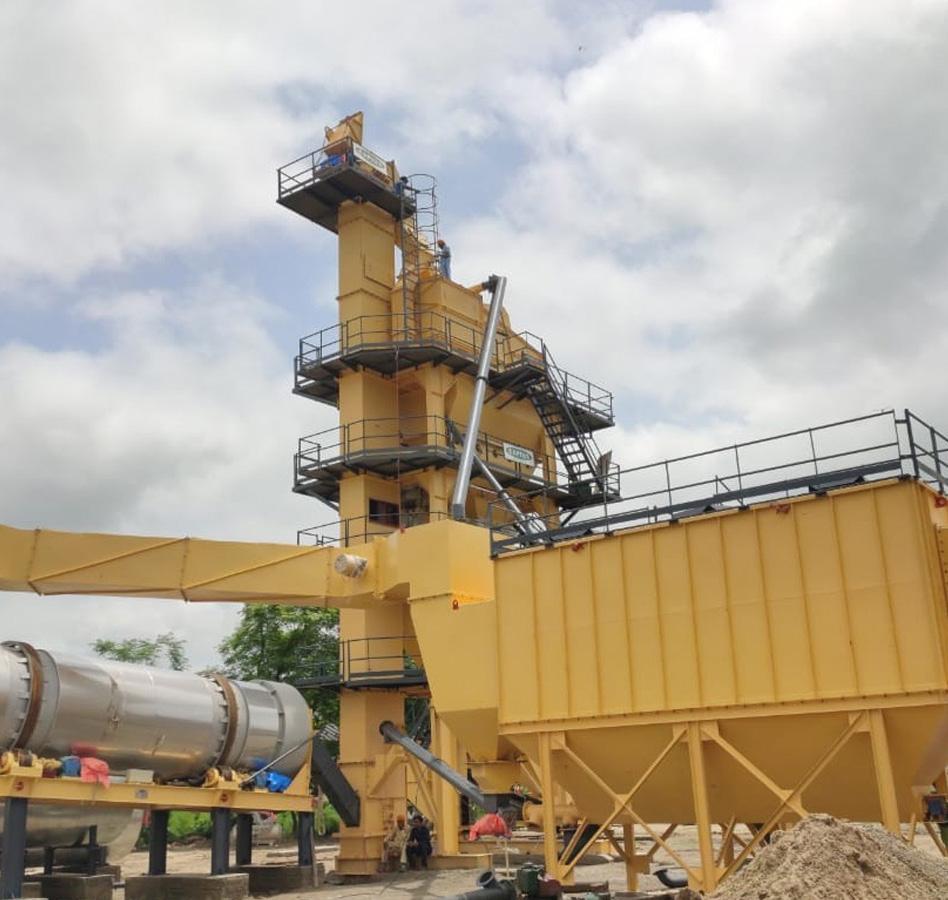
The asphalt plant is a set of equipment used to blend aggregates and bitumen to produce asphalt mix. Mineral fillers and additives may be required to add to the mixing process in some cases. The asphalt mix can be widely applied for the pavement of highways, municipal roads, parking lots, airport expressway, etc.
It is utilized to heat, dry cold aggregates, and blend them with bitumen, RAP, and other binders as per diverse recipes to produce different final mixtures for road surface paving. Now that there are two basic types of HMA manufacturing facilities, two different working principles are existing correspondingly. Asphalt batching plant is a set of equipment that produces final mixture batch by batch and characterized by intermittent pauses between batches. Due to the accurate weighing system for dosing the aggregates, bitumen, and other admixtures, the products are of high quality.
In most cases, the batch mix factories come with baghouse dust filters. And the dust generated during the whole process could be captured. It can also be reintroduced into the bucket elevator. Asphalt drum mix plant is a facility that is featured with a continuous paving material manufacturing process without interval pauses. It’s more time-saving and efficient, so compared with its counterpart, the lower-cost equipment will be an ideal choice if the quality standard of asphalt mix is not too high.
As opposed to batch mix type, the continuous one does not have a mixer, and the drying drum, no matter it’s a parallel-flow drum or counter-flow drum, performs the dual functions of drying and mixing. The first half of the multiple-function drum is for heating the cold materials, while the second half is for the heated aggregates to mix with bitumen and the optional admixture. Due to the continuous production property, to avoid downtime caused by the excessive final mix that is not delivered offsite immediately, a small temporary storage bin is sometimes a must. To control pollution, the drumming equipment is often equipped with water dust filters or baghouse collectors.
PLANT & EQUIPMENT
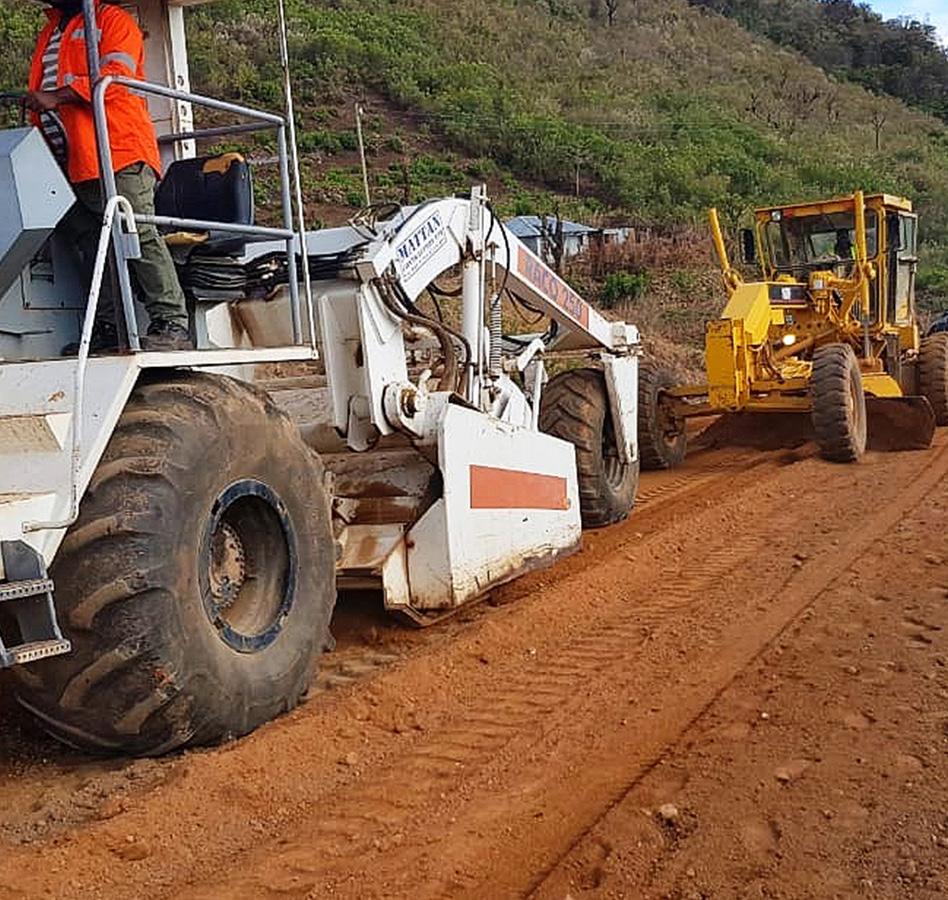
There are several types of equipment that are used in the Construction Industry. These are used for both large and small scale purposes. Various types of Equipment are been used for Building & structural Construction, Road construction, underwater and other marine construction work Power projects etc.
Various operations are involved in construction projects, whether it’s a large scale or a small scale; Excavation and digging of large quantities of earth, Placement of construction materials (eg:-Bricks, concrete) Compacting and levelling, Dozing, Grading, Hauling etc. Construction equipment can be categorized into 4 main sections based on purpose and use, They are:
EARTHMOVING EQUIPMENT
+ Excavators + Graders + Loaders + Skid loader + Crawler loaders + Backhoe + Bulldozers + Trenchers + Scrapers + Wheeled loading shovels
CONSTRUCTION VEHICLE
+ Tippers + Dumpers + Trailers + Tankers
MATERIAL HANDLING EQUIPMENT
+ Crane + Conveyors + Hoists + ForkLifts
CONSTRUCTION EQUIPMENT
+ Concrete Mixture + Compactors + Pavers + Road Rollers
PROJECT SUPPORT SERVICES
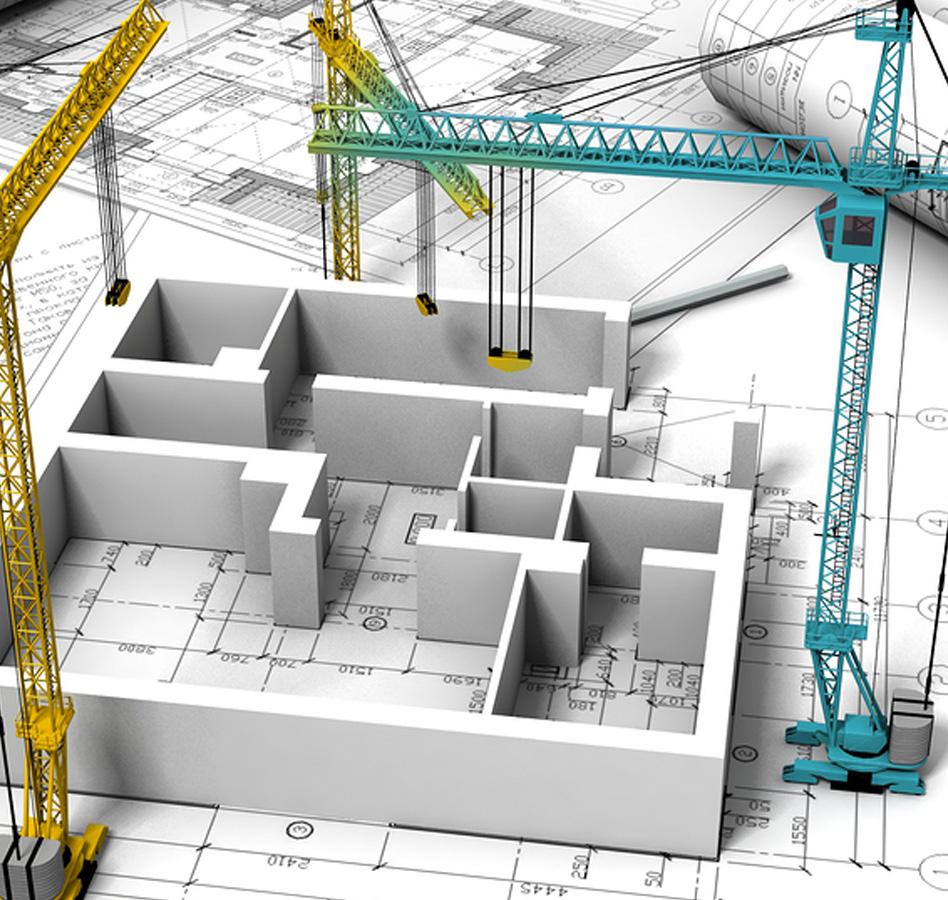
Mattan provides comprehensive support from initiation to close-out. We have refined our services to improve project outcomes over the life of a project. Effective project planning and ongoing project control support allow clients to manage forecast and control the impact of changes on the performance of a project by identifying variances or trends which may impact upon successful delivery.
Controlling and predicting the cost, risk and time elements of a project requires dynamic, up-to-date information and tools that provide greater insight into actual project progress and performance to support efficient and effective decision making. Mattan provides clients with the expertise to manage these elements by adopting an integrated approach, drawing on our experience, practices and our comprehensive suite of planning, monitoring and project control services and tools.
All of our estimating processes are based on our ability to undertake “first principle” estimates across all disciplines and are supported by a significant database of cost information that is regularly benchmarked to the market. Our core strength is providing independent cost estimating, ranging from tender environments to developing budgets at all stages of the project life cycle from the concept planning phase through to preliminary and final detailed design stages.
We assist our clients with the identification, development, implementation and delivery of infrastructure projects, to ensure they are delivered consistently and predictably. Our team of experienced, hands-on, project development, project management and construction supervision professionals can provide accurate and timely best for project advice, ensuring projects are efficiently procured, managed and delivered.
We also provide project management solutions to deliver diligently within time, budget, cost and risk parameters, we can provide a stand-alone project management solution, or we can embed experienced project and construction management resources into a client’s team. Our team’s proven experience and expertise to deliver comprehensive solutions to even the most complex projects allows our clients the confidence of best project outcomes when working with Project Support.
COST ENGINEERING & CONTROL

Cost engineering is “the engineering practice devoted to the management of project cost, involving such activities as estimating, cost control, cost forecasting, investment appraisal and risk analysis. Cost Engineers budget, plan and monitor investment projects. They seek the optimum balance between cost, quality and time requirements. One key objective of cost engineering is to arrive at accurate cost estimates and schedules and to avoid cost overruns and schedule slips.
Cost engineering goes beyond preparing cost estimates and schedules by helping manage resources and supporting assessment and decision making. “The discipline of ‘cost engineering’ can be considered to encompass a wide range of cost-related aspects of engineering and programme management, but in particular cost estimating, cost analysis/cost assessment, design-to-cost, schedule analysis/planning and risk assessment. Most people have a limited view of what engineering encompasses. The most obvious perception is that engineering addresses technical issues such as the physical design of a structure or system. However, beyond the physical manifestation of a design of a structure or system (for example, a road), there are other dimensions to consider such as the money, time, and other resources that were invested in the creation of the building. Cost engineers refer to these investments collectively as “costs”.
Cost engineering, then, can be considered an adjunct of traditional engineering. It recognizes and focuses on the relationships between the physical and cost dimensions of whatever is being “engineered”.
QUANTITY SURVEYING
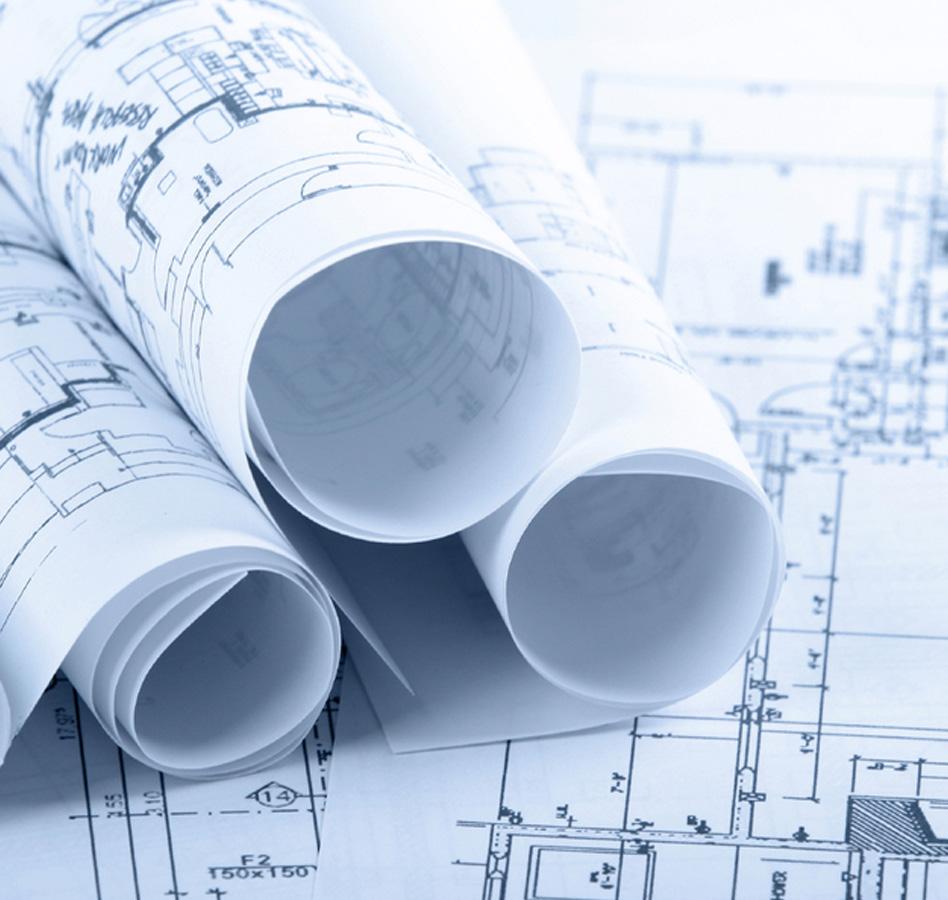
A Quantity Surveyor (QS) is a construction industry professional with expert knowledge of construction costs and contracts. Quantity surveyors are responsible for managing all aspects of the contractual and financial side of construction projects.
At Mattan, we help to ensure that the project is completed within its projected budget. We are also hired by contractors to help with the valuation of construction work for the contractor, help with bidding and project budgeting, and the submission of bills to the client.
Mattan Contractors has extended its duties to quantity surveying to guide our clients plan their projects accordingly and the following are our duties;
+ Cost estimate, cost planning and cost management + Analyzing terms and conditions in the contract. + Predicting potential risks in the project and taking precautions to mitigate such. + Forecasting the costs of different materials needed for the project. + Prepare tender documents, contracts, budgets and other documentation. + Take note of changes made and adjusting the budget accordingly. + Tender management including preparation of bills of quantities, contract conditions and assembly of tender documents + Contract management and contractual advice + Valuation of construction work + Claims and dispute management + Lifecycle costing analysis
We estimate and control costs for all our clients’ projects and make sure that structures meet legal and quality standards. We are also involved at every stage of each project, whether we’re working on residential, commercial or industrial projects, our clients rely on us to ensure that the outcome is value for money.
Furthermore, we take part in projects and work with contractors/clients right from the start, preparing comprehensive project estimates. Often, we also gather tender and contract documentation, conduct feasibility studies, and undertake risk control. Once the building process starts, we keep close tabs on any variations that may lead to cost fluctuations.







